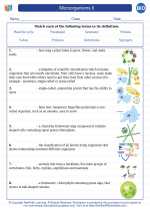Geosphere
The geosphere refers to the solid part of the Earth, including the rocks, minerals, and landforms that make up the planet's crust, mantle, and core. It is one of the four major components of the Earth system, along with the atmosphere, hydrosphere, and biosphere. Understanding the geosphere is important for studying processes such as plate tectonics, rock formation, and the shaping of the Earth's surface.
Key Concepts
- Rock Types: The geosphere is composed of three main types of rocks: igneous, sedimentary, and metamorphic. Understanding how these rocks form and interact is essential for understanding the geosphere.
- Plate Tectonics: The movement of the Earth's lithospheric plates is a key process in the geosphere. Plate boundaries are areas where major geologic activity, such as earthquakes and volcanic eruptions, occurs.
- Rock Cycle: The rock cycle describes how rocks are formed, broken down, and reformed over time. It involves processes such as weathering, erosion, deposition, melting, and cooling.
- Landforms: The geosphere is responsible for shaping the Earth's surface into various landforms, including mountains, valleys, plains, and plateaus. Understanding the processes that create these landforms is important for studying the geosphere.
- Minerals: Minerals are the building blocks of rocks and are essential components of the geosphere. Understanding the properties and formation of minerals is crucial for understanding the geosphere.
Study Guide
Here are some key topics to focus on when studying the geosphere:
- Describe the three main types of rocks in the geosphere and explain how each type forms.
- Explain the theory of plate tectonics and the types of plate boundaries.
- Illustrate the processes involved in the rock cycle and how they contribute to the formation of different rock types.
- Identify and describe common landforms created by geologic processes in the geosphere.
- Define minerals and explain their significance in the geosphere.
Additionally, it's important to understand the interconnectedness of the geosphere with the other Earth systems, including the atmosphere, hydrosphere, and biosphere. Understanding how these systems interact and influence each other is essential for gaining a comprehensive understanding of the Earth as a whole.
By mastering these key concepts and topics, you will develop a solid understanding of the geosphere and its role in shaping the Earth's physical environment.
.◂Biology Worksheets and Study Guides High School. Microorganisms II
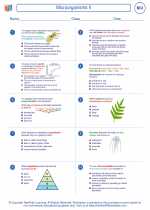
 Worksheet/Answer key
Worksheet/Answer key
 Worksheet/Answer key
Worksheet/Answer key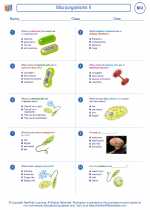
 Vocabulary/Answer key
Vocabulary/Answer key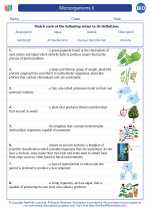
 Vocabulary/Answer key
Vocabulary/Answer key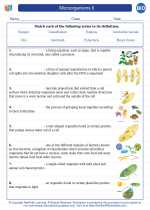
 Vocabulary/Answer key
Vocabulary/Answer key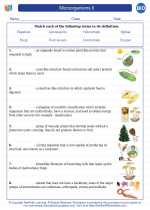
 Vocabulary/Answer key
Vocabulary/Answer key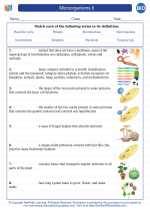
 Vocabulary/Answer key
Vocabulary/Answer key